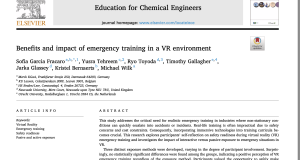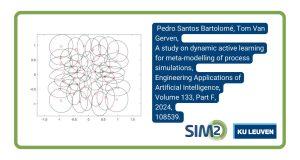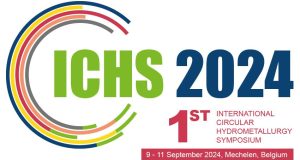SIM² KU Leuven has a new ERC Grantee! Following his ERC Starting Grant, Prof. Simon Kuhn has now also been awarded an ERC Consolidator Grant for his pioneering work on reactors for a more sustainable chemical industry.
Simon is one of the 4 KU Leuven researchers that are among this year's ERC Consolidator Grant recipients. The other 3 researchers are breast cancer researcher Christine Desmedt, computer scientist Tias Guns, and psychiatrist Lukas Van Oudenhove. Simon Kuhn (ProCESS Division/SIM² KU Leuven):
"In my ERC Starting Grant project, we already used sound waves to prevent small chemical reactors from clogging up. In this new project, we will go beyond this concept and use ultrasound to overcome transport and throughput limitations in microreactors.”
“My team and I want to develop novel reactors for chemical manufacturing. Electro- and photochemical reactors are more sustainable than other types because they don’t involve any heating up and can do without rare-precious-metal catalysts – you just need electricity. The problem with current reactors, however, is that their productivity is too low. We want to make the reactors more effective by using ultrasound, sound waves with frequencies that are too high for humans to hear. In my ERC Starting Grant project, we already used sound waves to prevent small chemical reactors from clogging up. In this new project, we will go beyond this concept and use."
About the ERC project (MICRODISCO)
Small-scale flow reactors for electro- and photochemistry support the shift in chemical manufacture towards green and sustainable processes based on renewable energy sources. However, the industrial application of these small-scale flow reactors is significantly limited by their currently achieved throughput and productivity.
The MICRODISCO project aims to overcome these productivity limitations by exploiting the synergistic effect of ultrasound on intensified electro- and photochemical reactors. Specifically, we will gain a fundamental understanding of the underlying ultrasound physics and their interplay with reactor geometry, material and fluid properties, based on beyond state-of-the-art modeling and experiments (Objective 1).
Subsequently, we will exploit this fundamental understanding to controllably excite ultrasound resonance modes to overcome species and electron/photon transport limitations in rationally designed intensified reactors. We will eliminate the diffusion limitation of electrochemical reactors for high-throughput self-supported organic synthesis by inducing active mixing via ultrasound resonance (Objective 2).
Furthermore, we will increase light utilization and mass transfer in two-phase photochemical reactors by inducing the gas-liquid atomization phenomenon (i.e. to nebulize liquid droplets from the liquid slug into the illuminated gas bubble) via ultrasound resonance (Objective 3). The MICRODISCO project will provide fundamental understanding of ultrasound resonance modes and a theoretical tool for their prediction, leading to innovative and intensified electro- and photochemical reactors promoting green and sustainable chemistry.
More info about KU Leuven's new ERC Grantees: See interviews by Katrien Bollen
Credits photo of Prof. Simon Kuhn: Rob Stevens – KU Leuven






